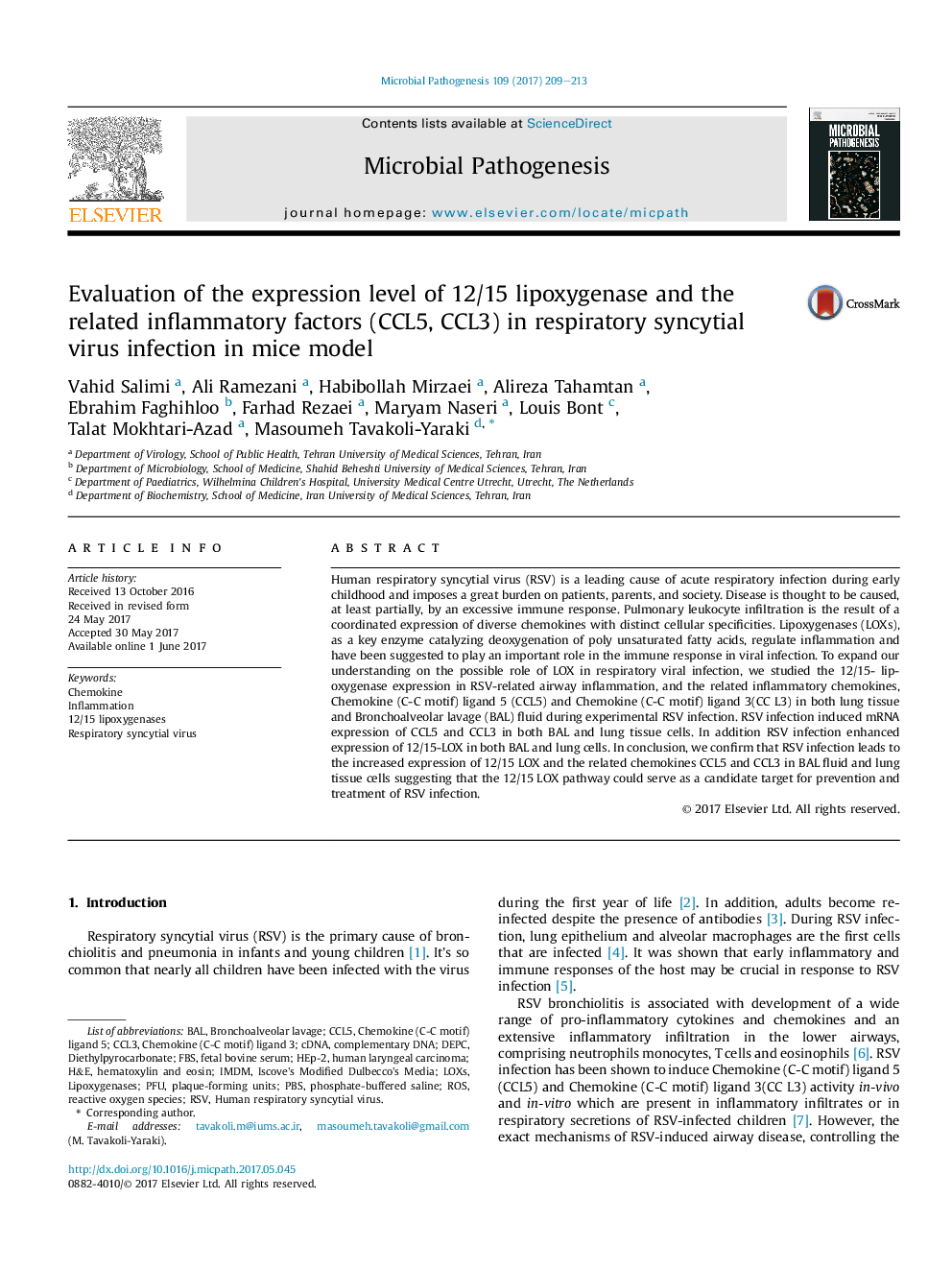| Article ID | Journal | Published Year | Pages | File Type |
|---|---|---|---|---|
| 5673883 | Microbial Pathogenesis | 2017 | 5 Pages |
Human respiratory syncytial virus (RSV) is a leading cause of acute respiratory infection during early childhood and imposes a great burden on patients, parents, and society. Disease is thought to be caused, at least partially, by an excessive immune response. Pulmonary leukocyte infiltration is the result of a coordinated expression of diverse chemokines with distinct cellular specificities. Lipoxygenases (LOXs), as a key enzyme catalyzing deoxygenation of poly unsaturated fatty acids, regulate inflammation and have been suggested to play an important role in the immune response in viral infection. To expand our understanding on the possible role of LOX in respiratory viral infection, we studied the 12/15- lipoxygenase expression in RSV-related airway inflammation, and the related inflammatory chemokines, Chemokine (C-C motif) ligand 5 (CCL5) and Chemokine (C-C motif) ligand 3(CC L3) in both lung tissue and Bronchoalveolar lavage (BAL) fluid during experimental RSV infection. RSV infection induced mRNA expression of CCL5 and CCL3 in both BAL and lung tissue cells. In addition RSV infection enhanced expression of 12/15-LOX in both BAL and lung cells. In conclusion, we confirm that RSV infection leads to the increased expression of 12/15 LOX and the related chemokines CCL5 and CCL3 in BAL fluid and lung tissue cells suggesting that the 12/15 LOX pathway could serve as a candidate target for prevention and treatment of RSV infection.
